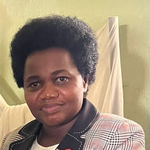Human Rights Situation in Burundi: Challenges and Opportunities - Hosted by the AIIA Queensland
Join us in-person for this exclusive member-only event with the Minister of National Solidarity, Social Affairs, Human Rights and Gender, in the Government of Burundi, Her Excellency Imelde Sabushimike, who will lead a group discussion with participants about the opportunities and challenges of the Human Rights situation in Burundi.
This is a Special Event for Members of the AIIA Queensland Only
If you are not a member and would like to participate in this group discussion, please click here to purchase one of our memberships today.
For those attending, please arrive at Holding Redlich at 5:50pm for registration as the event commence strictly at 6:00pm.
The event will be in-person only and an attendance fee of $10 will be applied.
After registering you will receive a follow-up confirmation email containing further details.
Tickets are limited so get in quick!
For in-person attendees, please note that you may be photographed or filmed for public consumption.
Historic wars and conflicts in Burundi have made the Burundian Government's pursuit of optimal human rights challenging. The country and its people have been plagued by violence since the country secured its independence from the Belgian colonial rule in 1960's, with the newly elected prime minister, Prince Louis Rwagasore, shot dead on 13 October 1961, that is, before his own swearing in ceremony. Later in 1965, there was an attempted coup against President Michel Micombero, who subsequently carried out reprisals in which up to 5,000 people were killed. One of the biggest massacres, however, occurred in 1972, with the then Government ordering the army to kill targeted Hutu intellectuals who were considered as a threat to the regime, eliminating between 80,000 and 210,000 of them. Thousands of Hutus fled to Zaire (now DR Congo), Rwanda and Tanzania, and some of them have remained refugees ever since. 16 years later in 1988, some Burundi Hutu refugees made an incursion from Rwanda into northern Burundi and massacred Tutsis, and thousands of Hutus were killed in subsequent military reprisals.
Melchior Ndadaye, the leader of the Hutu-dominated Front for Democracy in Burundi (French acronym: Frodebu), won the first democratic elections and became the first Hutu head of state in 1993. He was assassinated in a failed military coup after three months in office. This triggered a civil war which lasted more than 10 years. Burundi has been relatively safer over the last decade, making it possible for Burundians to rebuild the country and their families. Several refugees have progressively been coming back from neighbouring countries – Tanzania, Rwanda, DRC, and beyond. However, wars and conflicts over several decades have largely and adversely affected the country's economic performance, causing vulnerabilities in key areas. As such, major social-economic challenges persist, including poor purchasing power, affordability of basic items such as food, shelter, education, medical expenses, etc.
H.E Imelde Sabushimike is the Minister of National Solidarity, Social Affairs, and Human Rights in the Government of Burundi. She will speak about her current role that involves ensuring Burundians, including the most vulnerable cohorts are supported to live with dignity.
If you arrive after 6:00pm, the lifts may not be accessible. Ring 0477 610 083 for assistance.


